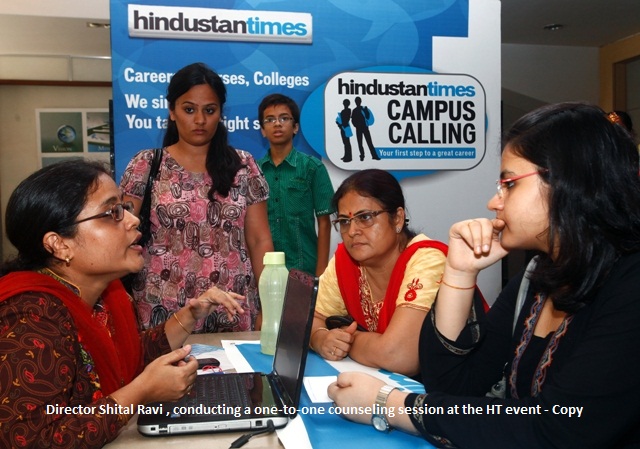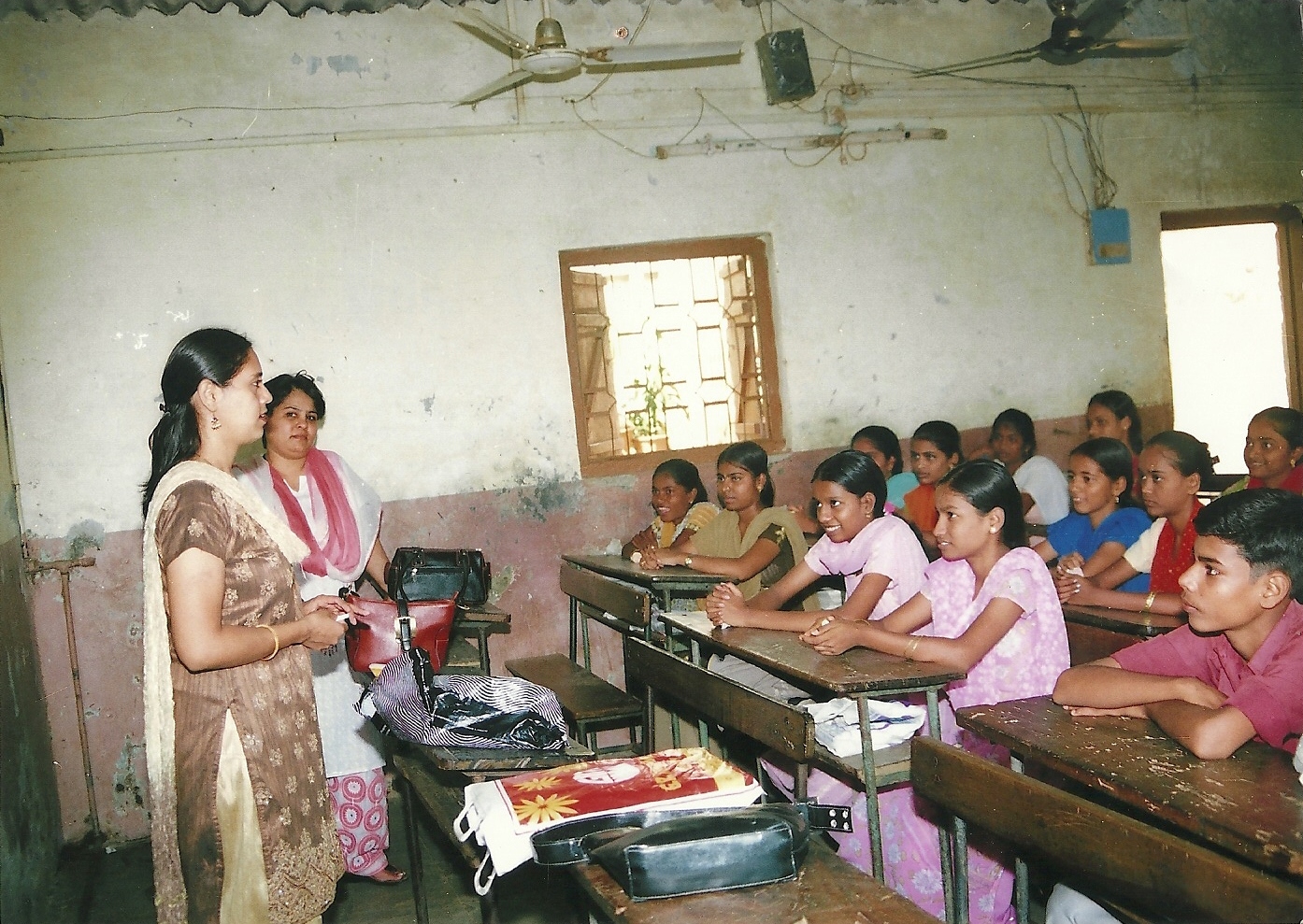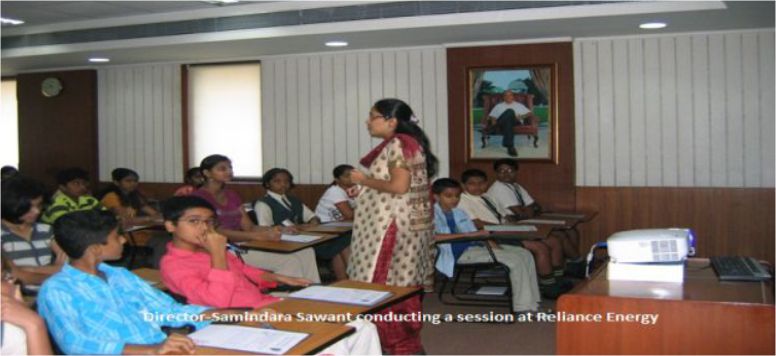WHAT IS THE AUTISM SPECTRUM ABOUT?

While growing up children need to master physical, cognitive, social, emotional and communication skills and changes appropriate to their age level. Thus, the autism spectrum describes a range of conditions which adversely affect the child's socialization, language and communication skills.
WHAT COULD BE THE WARNING SIGNS OF THIS CONDITION?

The autism spectrum encompasses a diagnoses of Autism, Asperger syndrome, pervasive developmental disorder not otherwise specified (PDD-NOS), childhood disintegrative disorder, and Rett syndrome. These disorders are often characterized by social deficits and communication difficulties, stereotyped or repetitive behaviors and interests, and in some cases, cognitive delay.
WHAT ARE THE COMMON CHARACTERISTICS?

Some common characteristics are as follows:
 Difficulties in relating to and communicating with other people
Difficulties in relating to and communicating with other people E.g. When they are babies they may not make adequate eye contact, have trouble responding to their names, may talk in a monotone without changing the pitch or tonality in a conversation.
 Repeating a particular behaviour in a non-typical manner
Repeating a particular behaviour in a non-typical mannerE.g. Some children may become fascinated, fixated or habituated to a particular object, or behaviour for no apparent reason. They may repeat these behaviours like playing with switches continuously, touching certain objects in an atypical manner, etc.
 Sensory motor HYPO or HYPER sensitivity issues
Sensory motor HYPO or HYPER sensitivity issuesE.g. Some children may show either a heightened sense (Hypersensitivity) of or diminished sensitivity (Hyposensitivity) to loud noises, sounds, smells and tastes sometimes. In some cases some children either eat only soft, mashed or lumpy foods. However, they may not eat other foods due to the texture.
 Use of peripheral vision (to see things in an atypical manner) may be more in some cases.
Use of peripheral vision (to see things in an atypical manner) may be more in some cases.However, these characteristics need to be correlated with other significant factors to arrive at a diagnosis.
WHAT IS THE CHECKLIST FOR SIGNS OF AUTISM?

COMMUNICATION
- Children with autism might:
- Have delayed or scanty speech as a child. They may also show very less or no babble at all.
- Use language only when they desire or speech may be absent or less developed
- They may not respond when their names are called out or initiate any response at all. They may also not follow simple instructions when requested by others around.
- Difficulty in understanding and conducting pretend play. E.g. doll plays, car fights, etc
- They may exhibit 'echolalia', which means they repeat, echo or mimic words or phrases without meaning or in an unusual tone of voice for no apparent reason
SOCIAL INTERACTIONS
Children with autism might:
- They may generally show shyness, fear or aversion to social interactions. It could also be observed that the child has less or no interest in social contact.
- Seem to be engrossed in their own world
- They may often exhibit social shyness, fear or anxiety
- They may show extreme emotional responses to unusual or trivial issues. They may also show less emotional responses or empathy.
- Show little or avoid eye contact all together while conversing, interacting, playing etc with others
- ay not use or respond to non-verbal gestures to communicate effectively
- Less enjoyment or interest shown in interacting with other children or age mates
REPETITIVE OR PERSISTENT BEHAVIOURS
Children with autism might:- Show repetitive body movements or unusual body movements. For example, back-arching, hand-flapping or walking on toes.
- Be very rigid and demanding about following routines or habits. Even a slightest change in schedules, routines may create intense tension or disturbance to them. E.g. Navya a 9- year old insists on keeping books in a specific way. If the alignment is changed she tends to become highly restless or may throw a tantrum.
SENSORY ISSUES
Children with autism might:
- Have intense interest/ fascination/ fixation on particular toys or objects
- Be fascinated with certain lights, sounds in an unusual or atypical manner
- Focus narrowly on an object. For example, on a detail like opening and closing the door on a toy bus rather than pretending to drive it
- Be extremely sensitive to sensory experiences. For example, they might be easily upset by certain sounds, or only eat foods with a certain texture
- Seek sensory stimulation. For example, they might like deep pressure touch or vibrating objects like the washing machine, pierce objects into their hands or legs, etc to seek some sensation.
IS AUTISM RELATED TO MY CHILD'S IQ?

Autism is not necessarily related to IQ. Some children with high IQ's are known as High functioning Autism children. Whereas others may possess below average, average ranges of IQ. However, autism can be present with other conditions (comorbidity) like: Mental Retardation, Epilepsy, Fragile X syndrome, ADHD, Tuber sclerosis, Rett Syndrome, etc to name a few.
WHAT SHOULD I DO TO MANAGE MY CHILD'S CONDITION?

he first line of intervention should aim at understanding and arriving at a diagnosis of the child's areas and range of difficulties/ delays. Undergoing developmental, intellectual and occupational therapy generally gives a comprehensive picture of the child's difficulties.
WHAT TREATMENTS OR APPROACHES SHOULD I FOLLOW?

The approach is aimed at helping the child cope with social skills, behavioural independence and academic development depending on the child's difficulties. Some of the therapies useful in managing the conditions are as follows:
- Applied Behavioural Analysis (ABA)
- Psychoeducational and academic interventions
- Social skills and behavioural training
- Speech and language therapy
- Sustained occupational and sensory-motor integration therapy
wrapper
Announcement
About Us
Disha is a center dedicated to the mental health and vocational guidance of children, adolescents and adults since 24 years.
We render a variety of services, namely aptitude testing, career guidance, psychotherapy, family counseling and so forth.
Other Services
In today's fast paced and competitive world ...
We at Disha , conduct a wide array of psychometric ...
Moving towards a more integrated approach, ...












